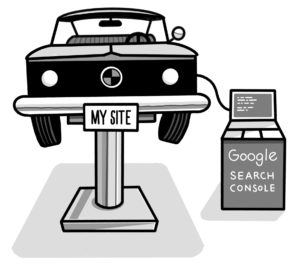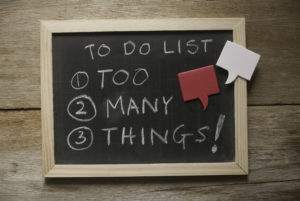
As an entrepreneur, your job is to be creative. It’s your role to come up with innovative ideas, solve problems, and maximize the streams of income in your business.
Let’s be realistic—how much innovative and creative time do you actually get? If you’re anything like most of the entrepreneurs I know, you’re always wishing you spent more time doing creative work, the stuff that really excites you and the reason you’re passionate about your business. Yet so many of us feel creatively drained, with little time or energy to think creatively among our busy schedules and hectic lives.
The worst part is it’s a self-perpetuating problem. As we allow our lives to be taken over by tasks and our brains filled up with worries and to-do lists, we neglect to use our creativity, making it even more of a struggle to get back into a creative rhythm when it’s most needed. For quite a while, I was caught in this negative spiral of neglecting creativity. I wasn’t playing the role I wanted in my business as the visionary. Instead my days were full of meetings and tasks, and by the time I went to bed at night, I hadn’t had any time to really think or create. I wasn’t coming up with many good ideas, and I didn’t feel inspired—I was just getting through the day.
I’ve now managed to create much more space for creativity in my life, but to do so, I had to learn to practice it regularly. Here are some of the things I’ve learned that have boosted my creativity immensely.
1. Creativity is like a muscle.
Many people wait around for inspiration to strike them and don’t act until it does. But inspiration is unreliable and inconsistent. You can’t count on it to give you good ideas when you need them. Creativity is a skill you can improve, and it works much like a muscle—the more you use it, the stronger it gets, and the easier it becomes to generate good ideas. By practicing creativity regularly, you’ll find that ideas come to you more regularly.
You can actually train creativity into your brain. Once you become accustomed to thinking creatively, you’ll begin to think that way in all parts of your life. You’ll never “run out of ideas.” When you start practicing creativity intentionally, it might be difficult at first to get your ideas flowing, but write them down no matter how terrible you think they are. You have to get those ideas out of your head before you find the really great ideas. I like to think of this like clearing the junk out of the way to create a path to what’s really valuable. The more often you practice it, the less junk is in the way, and the easier it will be to strike on great ideas.
2. Make space for creativity in your life.
In the digital world, it can be incredibly difficult to find space and time for your thoughts to wander. And I know that we entrepreneurs are especially prone to trying to fill every moment of the day productively. Be honest—do you read articles on your phone while you sit on the toilet? Do you listen to podcasts or audiobooks in the car? While there’s certainly value to maximizing your time through activities like these, they can actually have a negative effect on your creativity.
Our brains need space to think. If we’re constantly filling them with input—from our phones, audio devices, email, or even people around us—there’s no time or space for them to wander. When do you tend to get your best ideas? I bet it’s in the shower, or when you’re peeling potatoes or doing the dishes. The reason is that these tasks give us space to think.
One of the best strategies I’ve used to make more room for creativity in my brain is to delete the apps on my phone that tend to distract me whenever I have a spare moment. I’ve also cleared out a day every week I dedicate to creativity. However, if that seems drastic to you, start with a smaller step like driving in silence or taking a walk and leaving your phone at home.
3. Prep yourself for creativity.
You can make the most of your creative time and ensure it remains productive by taking some measures to prepare your brain. Exercise is known to boost creativity significantly, so I suggest getting your heart rate up before or even during your dedicated creative time. It’s also important to clear your head of worries and get rid of excess stress, which can clutter your thoughts and distract you from what you really want to think about. Surely you’ve spent an entire shower or car ride worrying about something rather than letting your thoughts wander—that’s a sign you’re too stressed out to think creatively. Stress and creativity clash. And while reducing stress often isn’t easy, it’s necessary in order to improve your creative productivity.
There are other great ways to prep for your creative time to ensure your brain is working at its best. Create a routine that includes creative time, and don’t let anything encroach on that time. Turn off your phone and don’t allow yourself to respond to emails during that time. Make note of what time of the day your energy is highest and when you feel the most creative. Most people tend to be at their peak mentally in the late morning, but I recommend testing a few different times of the day out and finding what works best with you. Learn your natural rhythm and then stick with it.
4. Prioritize creativity.
The key to becoming more creative is prioritizing creativity in your life. That means carving out your creative time and protecting it. Block it out on your calendar, and don’t schedule meetings or anything else during that time. Once you begin to make allowances, you’ll be shocked at how quickly that creative time will disappear entirely. It must be non-negotiable.
What worked best for me was to allocate Wednesdays as Creative Days. My executive assistant cleared my calendar from all meetings, which gave me the space to innovate and be creative. I have to admit that it was a bit of a challenge initially, but I stuck with it and watched my entrepreneurial mind work its magic.
It’s also very helpful to have a dedicated physical space for creative activities such as writing, a quiet space where you can focus and that is cut off from the rest of your responsibilities, where you can close out the rest of the world. This could be something as simple as a chair, a designated place in your home or business, or just your daily walk. Generally, your office is too distracting, unless you’re able to close the door and shut off your computer or phone. Even then, it can be hard to get your brain out of task mode when you’re in a place you associate with completing tasks rather than creativity.
Ultimately, creativity should be a priority to you as an entrepreneur. Your ideas are valuable to your business. Creativity is an important part of taking care of your mental health, which will help keep you prepared to face the challenges that arise regularly in business and allow you to push your business to new heights as you implement your ideas.
So, where will you begin in giving yourself space to innovate and be creative?




